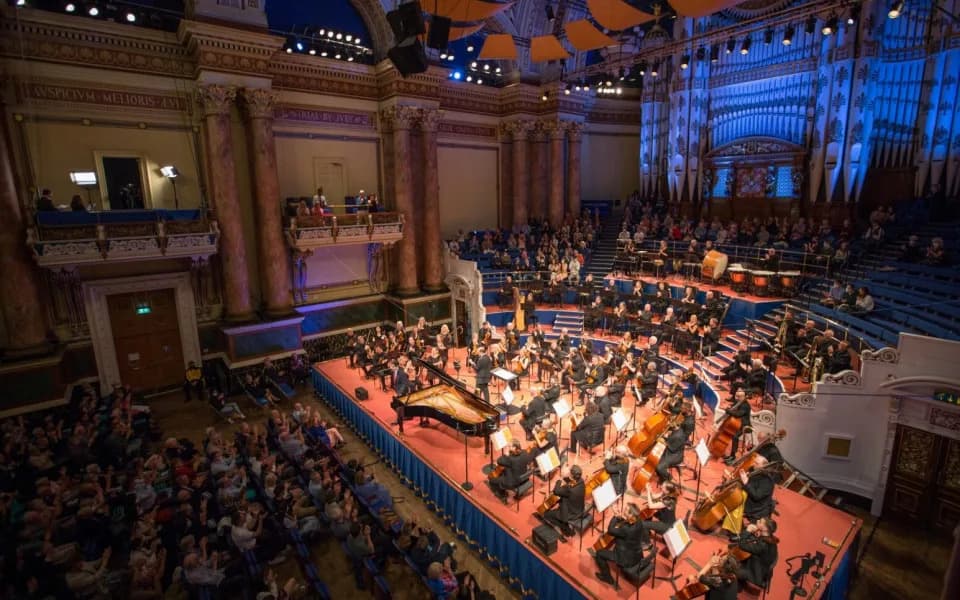 We are constantly being reminded of the importance of having “goals” in our lives in order to achieve certain things, from getting fit to winning a half-marathon or setting up a business. We believe that having goals motivates us to put in the training, go to the gym three times a week or practice regularly and efficiently. As musicians we are reminded of the benefits of “goal-oriented practice”, which is intended to enable us to achieve certain goals (passing a diploma, succeeding in an audition or competition).
We are constantly being reminded of the importance of having “goals” in our lives in order to achieve certain things, from getting fit to winning a half-marathon or setting up a business. We believe that having goals motivates us to put in the training, go to the gym three times a week or practice regularly and efficiently. As musicians we are reminded of the benefits of “goal-oriented practice”, which is intended to enable us to achieve certain goals (passing a diploma, succeeding in an audition or competition).
There’s nothing wrong in having goals – they can provide a useful focus – but they can also create disappointment and unhappiness, especially if one does not always fulfil one’s goal. In addition, goals can be curiously anti-motivational. If all your endeavour is focussed on a single goal, what else is there to work for when that goal has been reached? This approach can create a “yo-yo effect” where you might go back and forth from working on a goal to not working on one, which makes it difficult to build upon your progress long-term.
If you are continually working towards a goal you are in effect saying “I am not good enough yet, but I will be when I reach the goal”. The problem with this attitude is that we tend to postpone happiness and fulfilment until we reach the goal. Thus, it puts a huge burden on us to succeed, which can create unnecessary stress. Instead, we should be kind to ourselves and enjoy the daily process: keep to a realistic daily practise schedule rather than stressing about that big, potentially life-changing goal.
In order to attain, or even aspire to a goal, we need to have a system, but how often do we actually consider the system by which we reach the goals? For the sportsperson, for example, that system is training. Similarly, for the musician, the system is practising (and this includes not just time spent playing one’s instrument but also time spent studying the music away from it, including mental practice, memory work, reading, listening, thinking etc).
If we release ourselves from the need for immediate results, a systems-oriented approach will allow us to build progress day by day. This is similar to the “marginal gain learning” system, and it enables us to make long-term progress, which is far more valuable than short-term results.
There is nothing wrong with having goals. Goals are good for planning progress, but systems enable us to make progress. And when we know we are making noticeable progress, we feel motivated to continue.
The following systems are helpful in achieving sustained and long-term progress in one’s musical study:
• Background research, reading, listening and study of the music away from the instrument
• A detailed understanding of the structure and overall narrative of the piece
• Regular critical self-evaluation and feedback
• Really close and considered attention to the details of the score (dynamics, phrasing, articulation etc)
• Trusting one’s own musical knowledge and judgement rather than received ideas about what the music should sound like
These are all skills which can be developed and finessed and which are not lost the moment one fails to achieve one’s goal. Rather, one continues to build on them, creating small but significant positive gains which go to create a significant whole.
Bertrand Chamayou – Schubert “Wanderer Fantasy” – II. Adagio
You May Also Like
-
 “Less is More” – Marginal Gain Learning "Marginal Gain Learning" (MGL) is a training concept employed by the British cycling team which has reaped brilliant rewards
“Less is More” – Marginal Gain Learning "Marginal Gain Learning" (MGL) is a training concept employed by the British cycling team which has reaped brilliant rewards
More Opinion
-
 The Musician’s ‘Non-Negotiables’ Want to level up your music practice? Take inspiration from 'The Bear'
The Musician’s ‘Non-Negotiables’ Want to level up your music practice? Take inspiration from 'The Bear' - The 12th Hamamatsu International Piano Competition
Judgement Explore how they're setting new standards in competition judging -
 Has The Leeds Piano Competition Gone Woke? The Leeds Piano Competition's new guidelines spark debate. Share your thoughts!
Has The Leeds Piano Competition Gone Woke? The Leeds Piano Competition's new guidelines spark debate. Share your thoughts! -
 Nurturing the Musical Brain It is essential to make music part of someone’s development as early as possible
Nurturing the Musical Brain It is essential to make music part of someone’s development as early as possible




